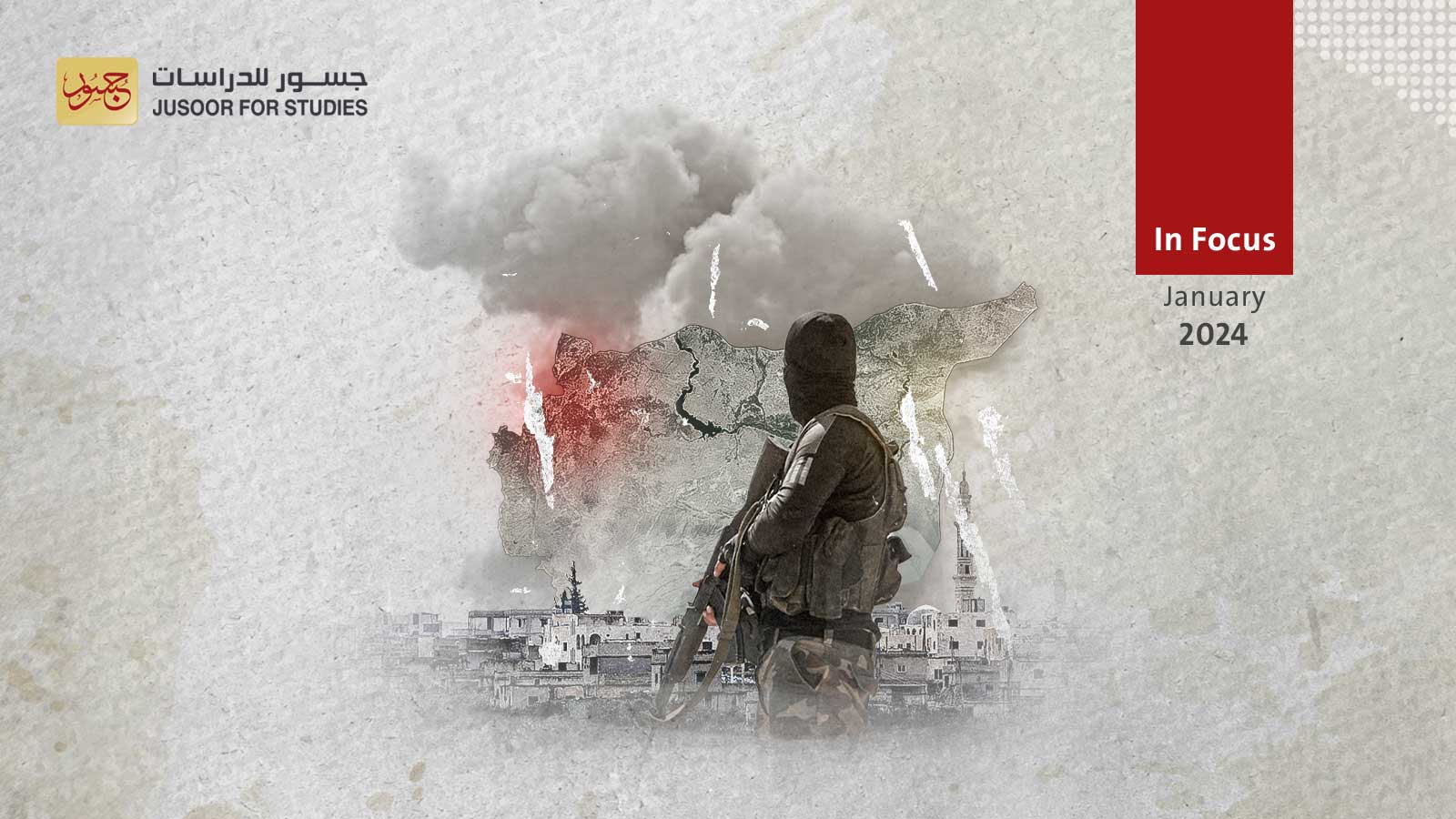Does Escalation in Idlib Mark the Collapse of the Ceasefire?
Pro-regime forces in Syria have been bombarding the northwestern province of Idlib almost continuously, with various types of weapons, for three months. On January 6 and 7, they struck the city of Idlib with white phosphorus, the first such attack since 2021.
The latest bombing has hit numerous civilian and military facilities including economically important sites, mostly in the western countryside of Aleppo province and the eastern part of neighboring Idlib. The campaign has involved Russian warplanes and regime artillery units mainly commanded by fighters from Lebanon’s Hezbollah movement or Iran’s Revolutionary Guards. Turkish forces have retaliated against some of the sources of fire, partly in response to a strike on one of their bases west of Aleppo.
The escalation followed an attack on the military college in Homs in early October, which the regime blamed on opposition forces, responding with an intensive bombing campaign that is still ongoing.
However, the ceasefire in place since 2020 had already been eroding before the escalation; belligerents had engaged in repeated clashes on and behind the front lines as well as drone attacks since the middle of last year.
The regime’s aim is to stop these repeated attacks on its positions, fearing they could lead to a change in the rules of engagement along the front lines in Idlib. Its bombing campaign is intended to inflict the maximum harm on civilians so they in turn blame the opposition and Al-Qaeda-linked armed group Hayat Tahrir al-Sham for the collapse of the truce. Regime forces are also targeting equipment, vehicles and weapons to demolish the opposition’s military capacity.
Russia and Iran are supporting the regime’s escalation in Idlib, apparently seeing it as a means to put pressure on Turkey in response to the latter’s increased coordination with the United States east of the Euphrates. They want to push Ankara towards resuming diplomatic normalization with Syria, which has been on ice since a summit between the foreign ministers of Russia, Syria, Turkey and Iran last May.
Turkish attacks on Syrian regime positions, on the other hand, send a message that Ankara is ready and willing to confront the regime and Iranian militias and discourage them from exerting military pressure on it, in exchange for concessions.
The regime has focused its latest bombing campaign on front lines in the western countryside of Aleppo, especially Darat Izza, seemingly to signal that it is able to cut off connections between opposition areas in north Aleppo and Idlib.
However, a slide into an open confrontation in Idlib similar to the one that took place in 2020 is unlikely. The regime and its allies are not ready to launch a full-scale offensive, nor does Turkey wish to undermine the fragile stability in the region.
However, escalations and bombing campaigns are likely to continue periodically as each side attempts to pressure the other and change the rules of engagement in its favor. On the other hand, this could gradually erode the truce and increase the possibility of a wider escalation.








